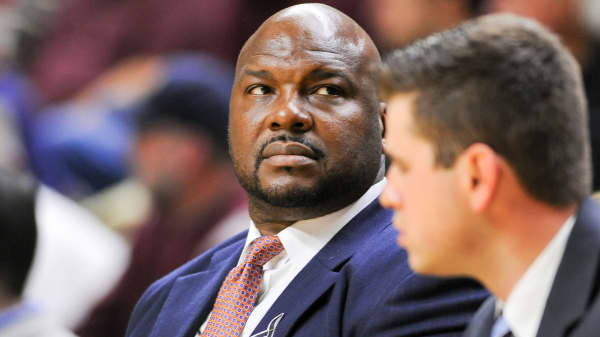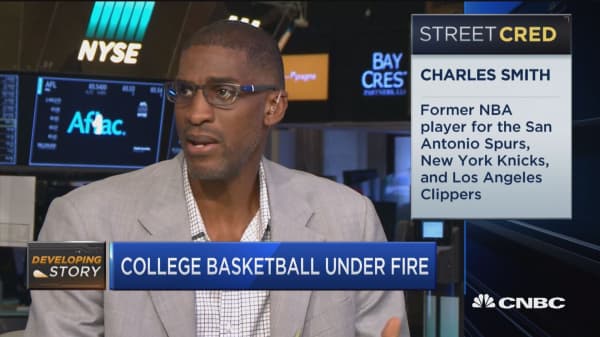In other words, while the schools cannot officially or directly pay their star athletes, there is a tremendous incentive to find other ways or other parties to lure and compensate blue chip players. The alleged arrangement here is cozy and illegal. In essence, the sneaker companies can act like de facto money launderers in payoffs to athletes. In return, they get the best players and best college programs acting like a major national commercial as they wear their products.
College sports is a big business with annual revenues of more than $9 billion, according to USA Today. And that doesn't even include the money changing hands in college sports betting. During college basketball's "March Madness" period alone, $10 billion is wagered, according to estimates from the American Gambling Association, as it seems like every breathing American fills out a bracket or two.
If these allegations are true, it's hard to believe just a few schools are succumbing to the lure of using outside parties like the sneaker companies to help them net the best high school athletes on National Signing Day. It would be surprising if these arrests are the end of the story in a probe that's been going on since 2015.
But the other ramification here is that these indictments will serve as the latest strong argument for compensating college athletes over the table and legally. The closest we've come to that happening was in 2014-15 with an ultimately unsuccessful attempt by some players at Northwestern University to form a college football players' union.
That effort fell just short. But with the revelation of this case of athletes getting paid under the table, the argument has much more behind it. Schools can hardly argue that they shouldn't be forced to pay top athletes when they are essentially doing so by other illegal means.
Again, none of this is a surprise to longtime college sports fans who have long known or suspected that the best players were being paid in some way or another. The sad thing here is that the value of getting a free education at a major university has again been devalued and, once again, made a mockery of the entire stated purpose of college athletics.
Commentary by Jake Novak, CNBC.com senior columnist. Follow him on Twitter @jakejakeny.
For more insight from CNBC contributors, follow @CNBCopinion on Twitter.






